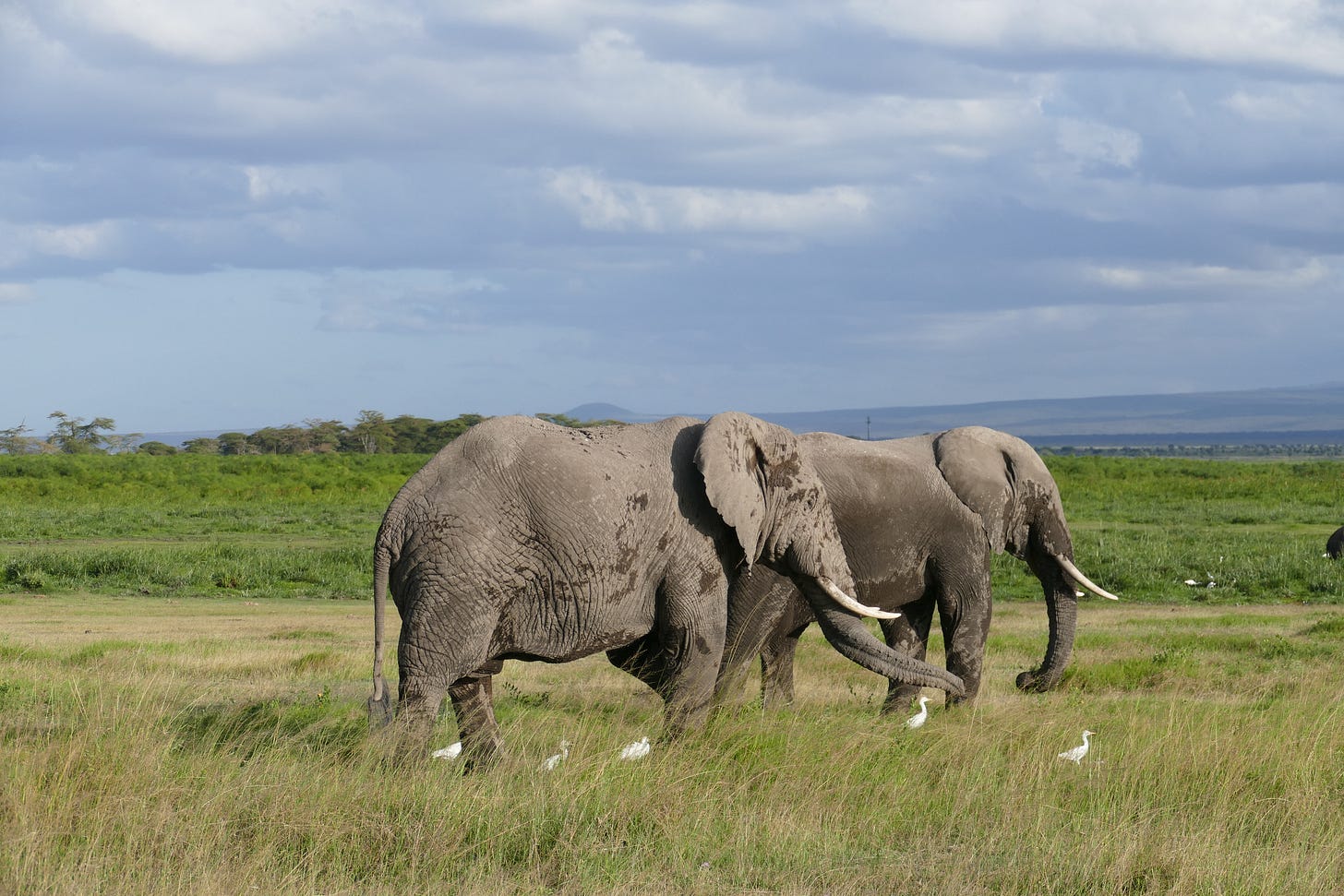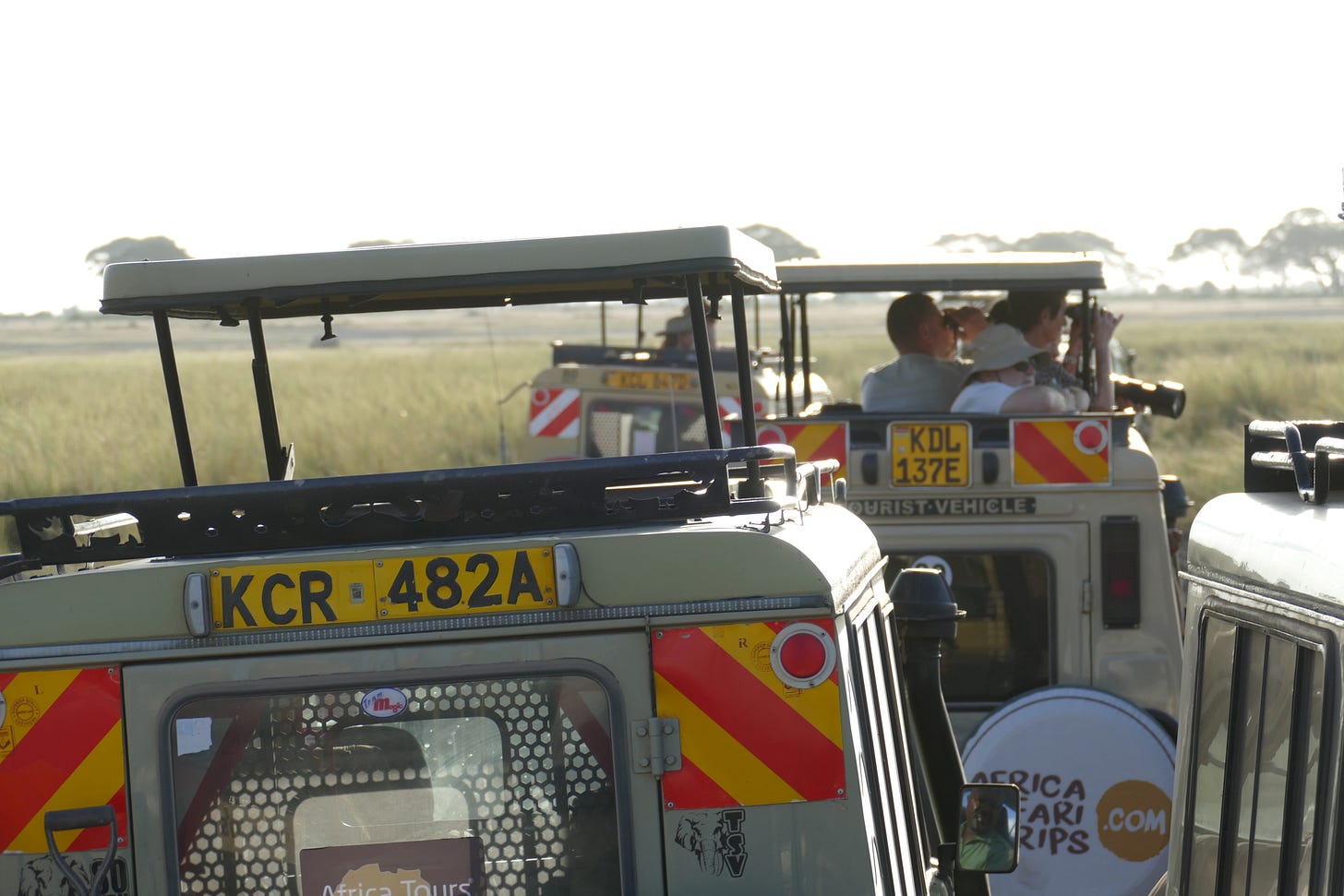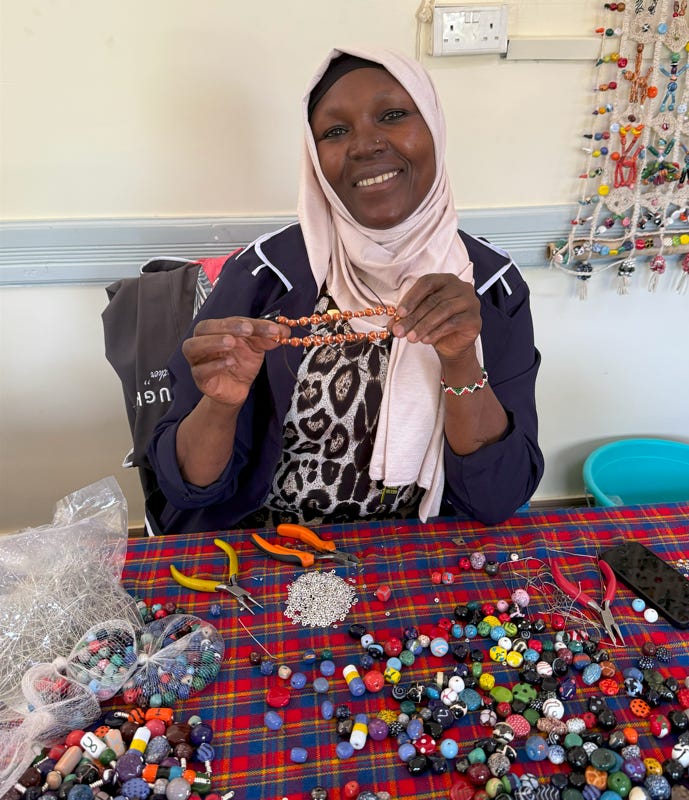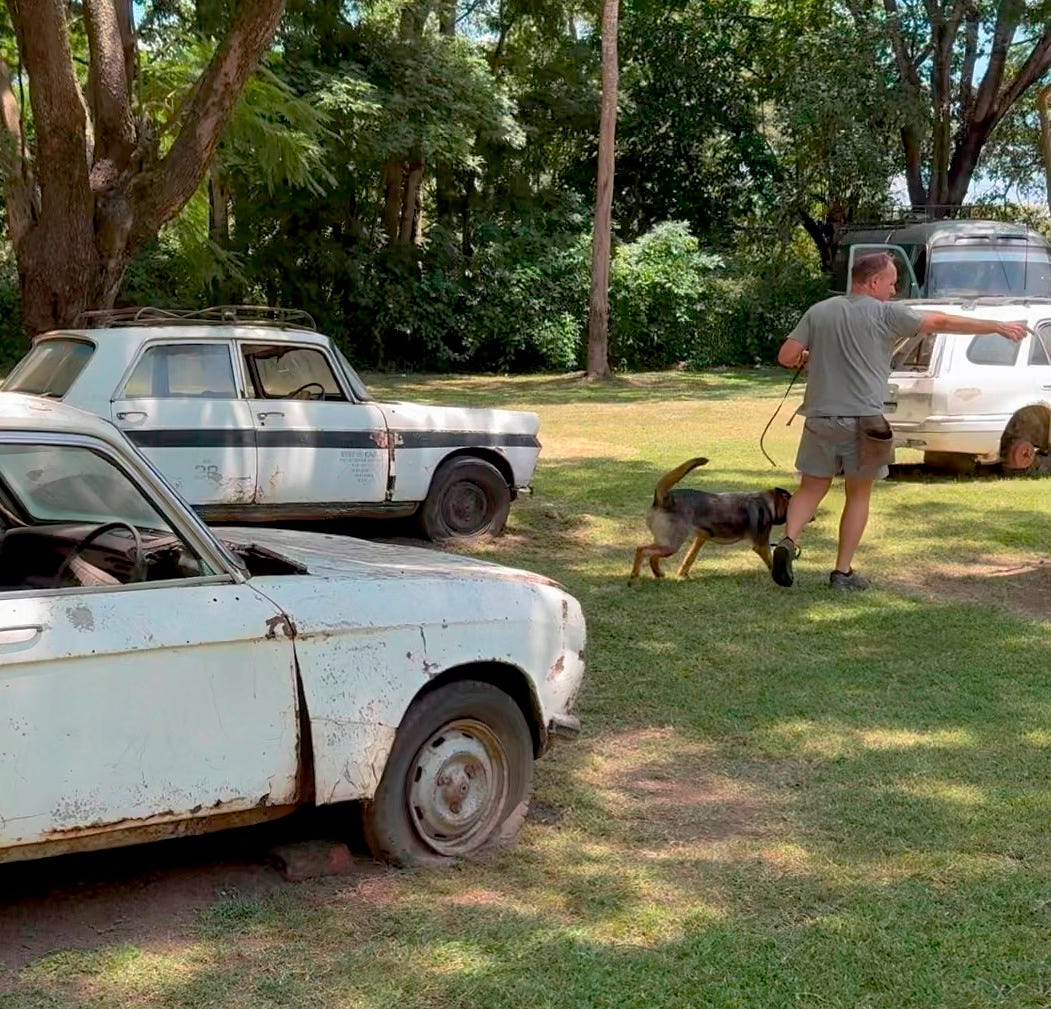A Swirl of African Emotions
The Complicated, Conflicted Worlds of Our Body-Minds (Vol. 5; Issue 7)
Our mental lives encompass multiple levels of thought and emotion. Because many clash with one another, they earn the phrase complex, conflicting emotional states. These feelings roil inside our beings alongside incessant thoughts. The emotions, which originate in our central nervous systems, become tamed and tinted by culture. But our thinking, in contrast, reflects mostly our social and historical contexts. Taken together, these feeling-thought threads make up the tapestry of our experiences.
Lest we confuse them with truth, the resultant garment of consciousness is simply a more organized, sophisticated form of the dreams of the night. We conceive of these as “our reality.” We Westerners share much of our conscious experiences in common. Yet its relativity cannot be underestimated. The world of persons reared by remote indigenous tribes, or of person spending years in solitary confinement, differ substantially from ours. In any event, metaphors fail to fully describe such psychophysiological complexity. Thinking of the body-mind as existing on multiple layers offers a workable format—however inadequate.
I offer a glimpse of the layered nature of my thoughts/feelings—live from East Africa—to illustrate the labyrinthine quality of subjective experiences. Since a comprehensive description of even one minute of life could easily fill 500 pages, this account barely captures the conundrum of a consciousness emerging the first afternoon of an African photo safari. With a nod to George Herbert Mead’s (1934) observation that we humans converse with ourselves like we speak to others, I mostly refer to myself in the second person.
The ride out in the jeep is exhausting, hours on rough and rutted dirt roads. You suddenly come upon the sight of a giraffe at the five-hour point. It’s breathtaking. Then more appear. Soon, you see zebras, impalas, and elephants across the savanna. The word awe-inspiring comes to mind. The head of a hippopotamus barely visible from the water’s edge appears in a marsh. It is surreal. It is unbelievable. Am I dreaming? You want to pinch yourself.
The elephants walk silently, in groups or rows. Their babies amble along, sheltered between the adults. It’s amazingly quiet. Initially enshrouded in clouds, the snowy top of Mt. Kilimanjaro suddenly appears shimmering in the setting sun's light. The elegance betrays description.
You feel grateful for the sheer luck and hard work allowing you to witness such unbridled beauty. Do you deserve it? What a once in a lifetime experience! What amazing luck. The fatigue from the hours spent in planes, buses, cars, jeeps, and hotels vanishes. A deeply peaceful feeling emerges. You smile from inside your heart.
Guilt erupts in parallel with the gratitude. What about your fellow persons, most of whom will never get the chance to witness such natural beauty? Did you neglect them? You contributed to how these gorgeous animals live sequestered within these few square miles of land. Their ranges shrink. Lion populations, in particular, drop precipitously due to poaching and to humans moving closer to the parklands. Climate activist David Wallace-Wells (2019) writes:
Ninety-six percent of the world’s mammals, by weight, are now humans and their livestock; just four percent are wild. We have simply crowded—or bullied, or brutalized—every other species into retreat, near-extinction, or worse. (p. 170)
Shame, guilt’s associate, also quickly surfaces. How could you not have worked to prevent polluting the planet? Why not devote yourself to climate activism? Aren’t you just another voyeur among your fellow wild-animal-perverts? Even the diesel-powered Land Rovers cram upon one another when a rare animal is sighted:
The feeling of pure horror sends shivers head-to-toe when you learn people can still buy the opportunity to KILL these precious animals. The privilege, and oh what a perfect word, might cost you $100,000 a beast. For such a fee, park rangers will steer you to older “retired males,” as if their demise by natural causes would prove insufficient. Scavengers, from hyenas to vultures, constantly lie in wait.
But guilt, shame, and horror only deepen as you realize you, too, are part of the problem. You flew to Africa, for one. You spent years driving gasoline cars, using gas ovens, and eating the products of methane-belching industrial meat companies. You’re also part of humanity’s dissociation from nature.
You feel disgust at your fellow humans, briefly sidelining your status as one of them. Like many of your fellow homo sapiens, you rely upon projection combined with externalization of blame. Those greedy petrochemical and industrial agriculture companies! Shouldn’t their CEOs be arrested? Exxon-Mobil knowingly withheld information about global warming from oil and natural gas extraction processes as early as the 1970s. What criminals! The disgust turns to rage.
Amidst the swirling kaleidoscope of these thought-emotions comes love, like the warmth exuding from the Masai tribespeople whose chests are wrapped in brightly colored shawls. They say “Jambo” (“hello” in Swahili) and flash bright white smiles contrasting their shiny obsidian skin.
You meet Will Powell, a man who trains dogs to detect elephant tusks, rhinoceros horns, and other products shipped by poachers. You mean, poachers still, in our era? From him you learn, with sadness, that only 415,000 elephants, 20,000 lions, and 21,000 rhinoceroses remain in ALL of Africa. He started a non-profit, Kuru, to support his “conservation dog” efforts. (You promise yourself to email him at will@kuru-dogs.org, but will you?) You envy Will’s skill at training canines to detect minute amounts of animal contraband hidden in abandoned cars on his property. You also envy this: He’s handsome; he’s young; he’s unbelievably dedicated.
You feel frustration that these corruption-riddled African politicians, who used to devote national park fees to the parks, now take the money themselves. They allot only small portions back to the parks. Just last month, Kenyan president William Ruto ranked second in the Organized Crime and Corruption Reporting Project’s (OCCRP) listings—after Syria's Bashar Al-Assad.
You fear for the future. Not for the planet, which will be fine. You worry about the fate of human civilization itself. Have we irrevocably ruined it? The 2023 report of the UN Intergovernmental Panel on Climate Change (IPCC), a synthesis of 14,000 peer-reviewed research studies, presents these worst-case scenarios likely by 2100:
The climate will warm by 8.5°C, destroying 99 percent of the world’s coral reefs, melting 80 percent of Alpine glaciers, and raising sea levels by three feet. By 2030, runaway meteorological events like heat waves, droughts, wildfires, hurricanes, and flooding will regularly occur. By 2050, these ecological catastrophes will create 200 million refugees. The report’s authors believe that, by then, half of humanity will die from malnutrition, heatstroke, or dehydration; crop failures, mass migrations, and military conflicts will kill others.
Striving to lift your mood, you remember Kim Stanley Robinson’s (2021) vision of a near-future wherein humanity allows huge swaths of land on Earth to return to its natural state. Might that happen, and with enough time left? You remember the zebras playing, the monkeys grooming, the lions roaming, the hippos sinking, and the wildebeests migrating. You also think, albeit still tinged with envy, of the handsome, dedicated Will Powell, of the good deeds he’s doing, of the hope he preaches.
How can you possibly sleep tonight? A glass of wine, a benzodiazepine, or perhaps both? It will be impossible with such racing thoughts and tense muscles. Perhaps the sheer overwhelm of the experience, the jet-lag, the skeleton-rattling jeep rides, the lovely 12 other humans on this trip, and the family and friends back home may, perhaps, just knock you out.
Meanwhile, and who would’ve thought, Joseph Conrad’s (1899/2016) Heart Of Darkness features a passage also depicting the body-mind’s complexity. Describing his search for the Ivory-thieving Mr. Kurtz in the depths of an African jungle, he writes:
The mind of man is capable of anything—because everything is in it, all the past as well as all the future. What was there after all? Joy, fear, sorrow, devotion, valor, rage—who can tell? (p. 32).
Enjoying this newsletter?
And check out my book, Lover, Exorcist, Critic: Understanding Depth Psychotherapy, available on Amazon.
References
Conrad, J. (1899/2016). The Heart of Darkness. New York: Norton.
Mead, G. H. (1934). Mind, Self, and Society from the Standpoint of a Social Behaviorist. Chicago: University of Chicago Press.
Robinson, K.S. (2021). The Ministry For The Future. New York: Orbit.
Stocker, T.F., Qin, D., Plattner, G.K., Tignor, S.K, Allen, J., Boschung, A., Nauels Y., Xia, Y., Bex, V. and Midgley, P.M. (Eds.). (2023). IPCC Climate Change Report: The Physical Science Basis; A Contribution of Working Group I to the Fifth Assessment Report of the Intergovernmental Panel on Climate Change. New York: Cambridge University Press.
Wallace-Wells, D. (2019). The Uninhabitable Earth: Life after Warming. New York: Crown







